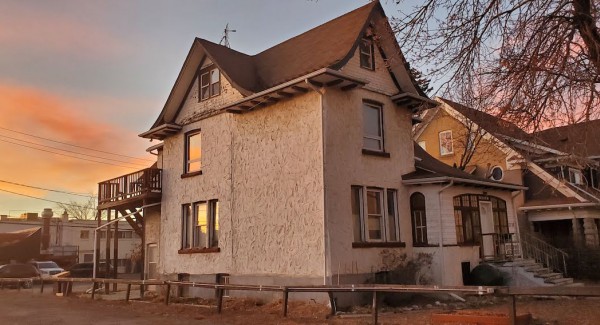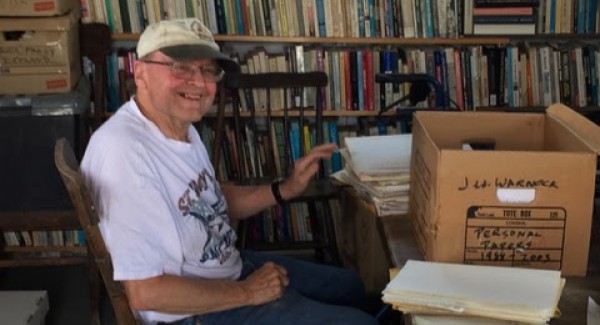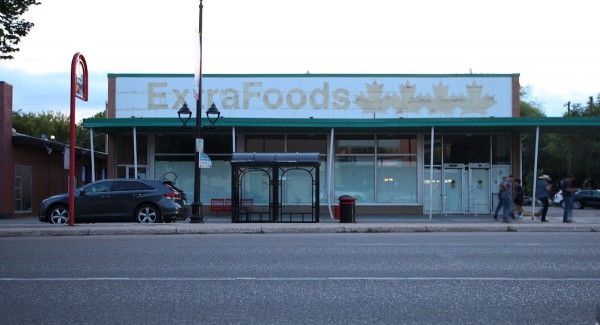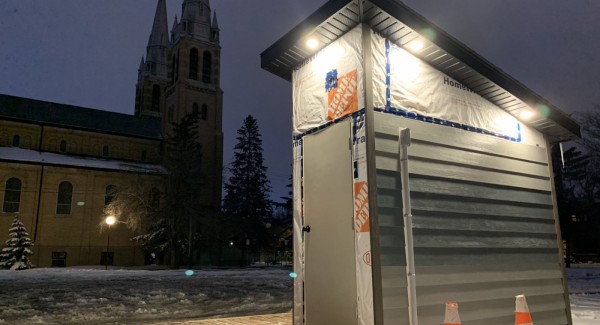A community response to COVID-19
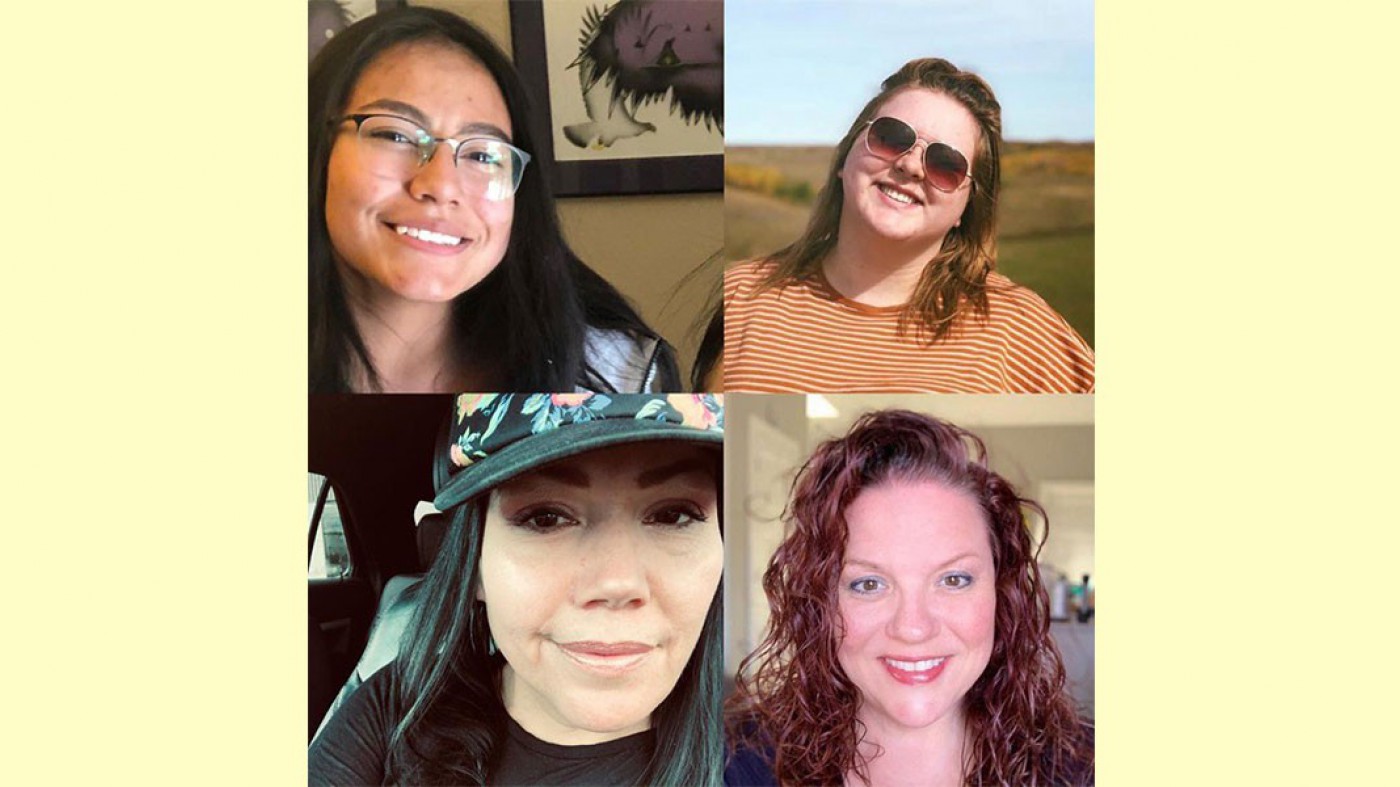
Clockwise from top left: Brianna LaPlante, Chelsea LaVallie, JoLee Sasakamoose, Chasity Delorme.
After a state of emergency was declared in Saskatchewan on March 18 and it became clear that the province would be entering an extended period of restricted movement – and that the elderly were among those most vulnerable to the virus – Regina COVID-19 Response group member Chasity Delorme says fellow group member JoLee Sasakamoose put out a call for volunteers to provide assistance for Elders and seniors. “We wondered who [was] going to help them get groceries and food and essentials that they need,” Delorme says. “And that’s how the core group developed.”
The group, an offshoot of Matriarchs on Duty – which describes itself as “a circle of First Nations matriarchs who action their inherent rights to intervene when one of their children or generations is in need” – has been delivering food, traditional medicines and teas, hot meals, personal protective equipment, and cleaning supplies to Elders and seniors throughout the pandemic. But even as restrictions are easing and many people are returning to their pre-pandemic routines, Delorme says the group has decided that its services are still needed.
“We wondered who [was] going to help them get groceries and food and essentials that they need,” Delorme says. “And that’s how the core group developed.”
“We’re continuing on because it’s had a good impact,” Delorme says. But “it’s taken a different focus” now that the acute crisis has passed, at least for the time being. While the group will continue to provide hot meals on Fridays, as well as traditional medicines and teas, their purpose has shifted “more towards the mental health aspect, ensuring that our seniors and Elders are having positive interactions regularly, because they deserve that.”
The group has had help from 40 to 50 volunteers over the course of its existence. Delorme says that the volunteers who were in regular contact with Elders noted that, even more than material goods, Elders and seniors needed consistent contact and strong relationships. “We identified that it’s become a very positive interaction for the Elders – they look forward to seeing the drivers, they look forward to having the meal on Fridays,” Delorme explains. “It’s become more of a positive thing for mental health.”
Although physical distancing measures made isolation more acute, loneliness is a health crisis of its own – one that, for many, will not necessarily be alleviated with the end of restrictions on movement. “There’s a lot of isolation,” Delorme notes. “Some seniors are afraid to ask for help.” By establishing these connections in a time of crisis, Delorme says the group “built a bit of confidence for [Elders] to be accepting of help.” She adds, “I think it gives them great comfort that someone is checking on them once a week to see how they are doing. Whether they always identify that they need something [or not], the most important thing is that phone call.”
“We identified that it’s become a very positive interaction for the Elders – they look forward to seeing the drivers, they look forward to having the meal on Fridays.”
The group is independent, but they’re loosely associated with Wellness Wheel, “an innovative, collaborative healthcare and research network working with First Nations communities and partners to improve and strengthen the quality of Indigenous health services, and the overall health and wellbeing of Indigenous people in Saskatchewan.” Recognizing acute needs in their communities, these groups work with or independently of established power structures to ensure that those needs are met. In a quote on the Wellness Wheel Facebook page, Sasakamoose says, “those of us who’ve been impacted by disaster before know how to handle disruption … for First Nations and Métis people, we don’t panic, we go into survival mode.”
As the group continues their work, Delorme notes that they’ve been relying on community support: “We’re just community people.”
“It’s mostly been community funded, just community members e-transferring money to buy ingredients and materials and the groceries,” she adds, although the group did receive larger donations from two local organizations, totalling $1,500. They’re hoping that community support will continue as their work persists and takes new forms. “We’re definitely looking at how we can make this something sustainable,” Delorme says. “We’re looking at moving forward and creating that positive interaction on a weekly basis.”
Delorme also praises the work being done by other community groups, like the Sikh Student Association’s No Hungry Tummy program, which has also been delivering food and essentials to seniors and new students throughout the pandemic, and wound down operation on July 31. But those groups may not have plans to carry on their work after the crisis has passed. And “there’s a handful of them that rely on us providing traditional medicines and traditional teas,” Delorme notes, a need that can’t be met by just anybody.
People who want to volunteer their services or send a donation can reach out to [email protected]. “Even though the pandemic was a health crisis,” Delorme says, “in the end something positive has become of it.”

